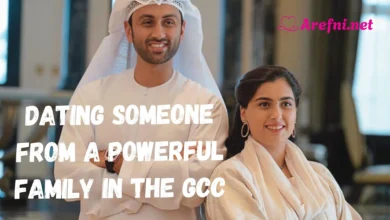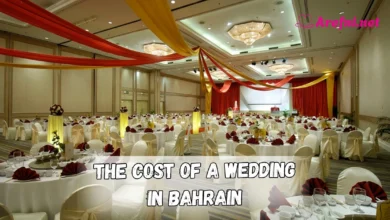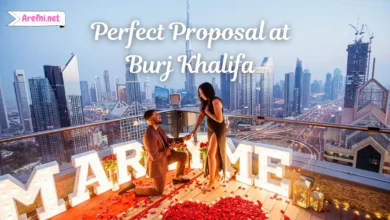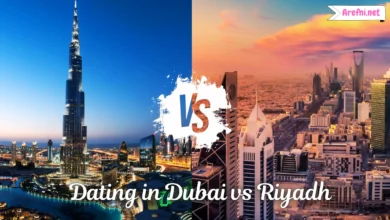Does Money Matter in GCC Dating Culture
Does Money Matter in GCC Dating Culture?
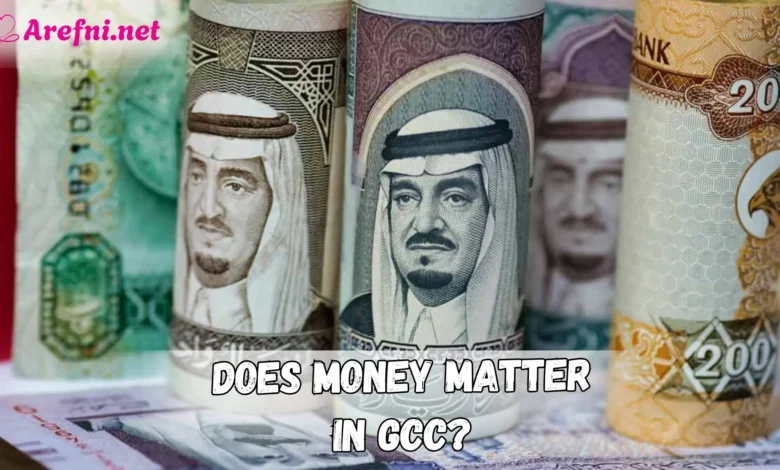
Dating in the Gulf Cooperation Council (GCC) region comprising Saudi Arabia, the UAE, Qatar, Kuwait, Bahrain, and Oman has always been shaped by cultural values, religious norms, and family traditions. But in recent years, a new factor has gained increased attention: money. From luxury dating apps and extravagant wedding gifts to financial status and dowries, the role of wealth in modern GCC dating culture cannot be overlooked.
So, does money really matter in GCC dating? The answer is both simple and complex: Yes, but with many layers.
A Region Built on Wealth and Status
The GCC countries are among the wealthiest in the world. Cities like Dubai, Doha, and Riyadh are global centers for business, tourism, and high-end living. As a result, financial status naturally plays a significant role in social dynamics, including dating and relationships.
In many social circles, especially among the upper class and high-net-worth families, relationships are often evaluated not only on emotional compatibility but also on financial readiness, family prestige, and even the potential to maintain or grow wealth.
Dating in a Luxury Society
The concept of luxury isn’t just about cars and mansions in the GCC it’s deeply embedded in lifestyle and relationships. Many young singles, especially in cities like Abu Dhabi or Kuwait City, associate romantic success with the ability to provide a certain standard of living. This includes:
-
Gifting gold and diamond jewelry
-
Hosting lavish engagement parties
-
Traveling to exclusive destinations like the Maldives or Paris
-
Offering designer handbags, watches, and perfumes as relationship gifts
These symbols of wealth are not just for show they communicate a sense of security, ambition, and social standing. In many Gulf cultures, this is seen as essential for marriage prospects.
The Role of Financial Expectations in Marriage
In traditional GCC marriages, money has always played a significant role. The concept of mahr (dowry) remains essential in Islamic and cultural practices across the region. But today, the financial expectations are higher than ever. In some parts of Saudi Arabia, for example, dowries can reach tens of thousands of dollars, often accompanied by gifts like:
-
24k gold jewelry sets
-
Luxury cars
-
Fully furnished villas or apartments
-
Custom bridal dresses designed by global fashion houses
These expectations, while rooted in tradition, have evolved to reflect modern economic realities. Families often view marriage as a union of not just two people but two households, and wealth signals a partner’s readiness for responsibility and success.
Dating Apps and the Rise of Financial Filtering
Technology has also changed the way people in the Gulf date. With apps like Tinder, Bumble, and more region-specific platforms such as Hawaya, singles are now exposed to a broader dating pool. However, wealth still plays a role even in the digital world.
Some platforms cater exclusively to high-income individuals or professionals, allowing users to filter by income level, occupation, or even net worth. In Dubai, for example, the rise of luxury dating apps has created exclusive spaces for elite singles looking for equally accomplished partners.
This trend reflects a broader reality: money influences even the earliest stages of connection, often before two people meet in person.
Gender Roles and Financial Responsibility
Traditionally, men in the GCC have been expected to be the primary providers. This includes paying for dates, offering gifts, and covering wedding expenses. While modern relationships have shifted slightly, these expectations largely remain intact.
However, women especially in the UAE, Qatar, and Kuwait are increasingly financially independent and career-driven. Yet, in dating culture, many still seek a partner who is at least as financially stable or more affluent. This isn’t necessarily about materialism but about maintaining lifestyle compatibility.
A woman working as a doctor or entrepreneur in Doha, for example, may not feel comfortable dating someone whose financial aspirations don’t align with hers. The goal is emotional and economic balance.
Expat Dating in the GCC: Money Still Talks
For expatriates living in GCC countries, dating comes with a unique set of challenges and finances are often at the core.
In countries like the UAE or Qatar, where expats make up a large part of the population, lifestyle differences can create barriers in dating. Some high-income locals or wealthy expats prefer partners from similar economic backgrounds. Meanwhile, mid-level professionals may find it difficult to keep up with the high cost of socializing in cities like Dubai.
Popular date ideas such as rooftop dinners, yacht parties, or weekend getaways to luxury resorts in the region are financially out of reach for many, highlighting the economic gap in the dating scene.
Is Money a Deal-Breaker?
In a culture that places immense value on appearances, status, and success, the answer is often yes money can be a deal-breaker. While not everyone is looking for a millionaire, financial stability is almost always seen as essential.
For many families, especially when arranged marriages are still practiced, a suitor’s income, education level, and job title are major decision-making factors. In some cases, families reject proposals solely due to a lack of wealth or prestige, regardless of personal compatibility.
Even in love marriages, couples often delay tying the knot until the man can afford the mahr, wedding expenses, or a home of their own. This reality means that love is often filtered through a financial lens, particularly in the early stages.
The Influence of Social Media on Relationship Standards
Platforms like Instagram, TikTok, and Snapchat have dramatically influenced relationship expectations across the Middle East. Influencers flaunt designer handbags, romantic getaways, and luxurious date nights. These curated lifestyles raise the bar for what’s considered “normal” in dating.
For young singles in Riyadh or Abu Dhabi, seeing peers post pictures with Cartier bracelets, Rolex watches, or G-Wagon SUVs as gifts can create a distorted view of healthy relationships. The pressure to match or exceed these standards puts added financial stress on couples.
In many ways, social media has turned dating into a performance and money is the ticket to entry.
Gold and Jewelry: More Than Just Gifts
In the Gulf, gold and jewelry hold special cultural significance. They’re not just romantic gifts but symbols of security and long-term commitment. In fact, gifting gold in a relationship often signals serious intentions.
During engagement and marriage negotiations, families often expect the groom to present:
-
A full bridal gold set (necklace, earrings, bracelet, and ring)
-
A diamond engagement ring from brands like Tiffany & Co. or Cartier
-
Designer jewelry for the bride’s mother and sisters as goodwill
These practices reinforce the importance of wealth in relationship milestones and family approval.
The Cost of Weddings in the GCC
Weddings in the Gulf are often extravagant, especially among elite families. A typical wedding in Saudi Arabia, Kuwait, or the UAE can cost anywhere from $50,000 to over $1 million, depending on the venue, guest list, and décor.
Key expenses include:
-
Luxury venues in five-star hotels
-
Catering for hundreds (sometimes thousands) of guests
-
Gold and diamond accessories for the bride
-
Designer bridal gowns and traditional dresses
-
High-end photography and entertainment
This financial pressure means that many couples must either save for years or rely on family wealth to fulfill social expectations. In this context, a person’s ability to afford such a wedding becomes a major factor in their marriage eligibility.
Is the Culture Changing?
While traditional expectations remain strong, especially in Saudi Arabia and Qatar, change is underway. In places like the UAE and Bahrain, where modernity is more visible, some couples are choosing simpler weddings, co-financing their future, or even opting out of traditional mahr practices.
Still, even in these cases, financial discussions are central to relationships. Couples are more transparent about salaries, expenses, and future financial goals than ever before. This transparency is a healthy shift but still underscores that money matters.
Love and Lifestyle in the Gulf
Money is not everything in GCC dating, but it is undeniably important. Whether it’s reflected in engagement rings, social status, lifestyle compatibility, or family expectations, wealth plays a central role in shaping how love is expressed, pursued, and judged.
In a region where tradition and luxury often go hand in hand, financial readiness isn’t seen as a luxury it’s a necessity. That doesn’t mean genuine love doesn’t exist in the Gulf it simply means that for most people, love and money must go hand in hand.

